Alumni Stories
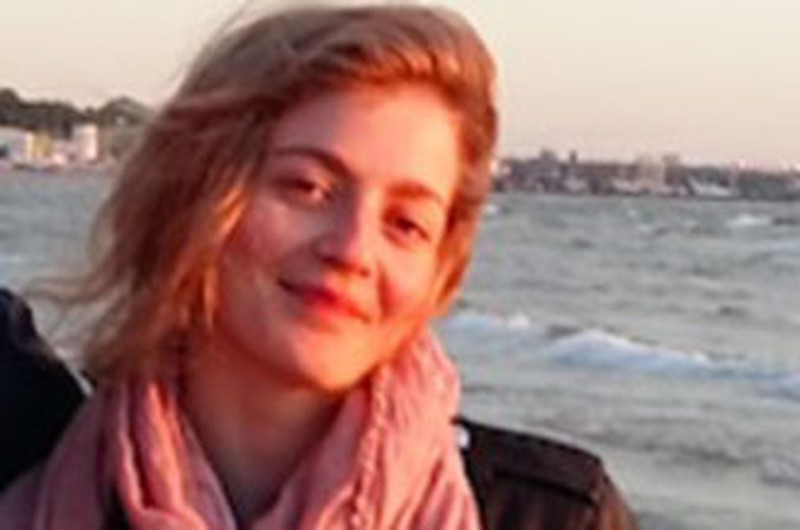
Anna Kolesnikov PhD student Université Sorbonne Nouvelle Paris 3
What bachelor's degree did you complete?
“Neuroscience, BSc, UCL.”
Why did you choose IMACS?
“I chose the IMACS course because the prospect of doing film studies at a high level while exploring multiple university environments and cultures was extremely appealing to me.”
Which universities did you attend? / What were your personal experiences abroad?
“Year 1 - Université Sorbonne Nouvelle, Paris III (home campus); Birkbeck, University of London. Year 2 - Università Cattolica del Sacro Cuore; Paris III
Paris - I was extremely fortunate to have Prof Antonio Somaini as my supervisor, who helped shape my interest in Eisenstein and the intercross between film studies and neuroscience, as well being a constant source of guidance and support. Curriculum wise, there was a wide array of courses from which to choose, and the high level of academic rigor expected from
students was demanding but also formative in shaping my skills as a researcher. And Paris is, of course, a uniquely beautiful and inspiring city to study film in.
London - I had an excellent experience at Birkbeck. The academic staff were extremely competent and supportive, encouraging students to engage with material in a critical and interactive manner. London offers an inexhaustible source of cultural activities. I particularly
enjoyed Birkbeck's Institute of the Moving Image and the Derek Jarman Lab, in which I participated.
Milan - Milan was a wonderful city to discover. Cattolica has a highly organised International Student Office, which greatly facilitated integration into the program. On an academic level, Cattolica has a very strong tradition in semiotics, which I greatly enjoyed, and the professors were always supportive and available.”
What do you like about this Master's program?
“I truly appreciated the opportunity to do film studies in three dynamic European cities and three rigorous academic institutions. It enabled me to build a network with European students and researchers that would not have otherwise been possible, as well as improve my knowledge of two foreign languages. Each cultural immersion opened my eyes to the reciprocal relationship between a particular culture's identity and world view, and their film tradition.”
Where and in which position do you work today?
“I am currently in the second year of my PhD on the Images, Body and Brain project at the University of Parma. I am continuing the research that I began with Prof Somaini in Paris on the physiological impact of cinema.”
What do you want to give other prospective students to take along?
“I wholeheartedly recommend this program for anyone who is passionate about film and audiovisual studies and wishes to develop a career rooted in strong European cultural ties, be it in an academic, creative or entrepreneurial context.”
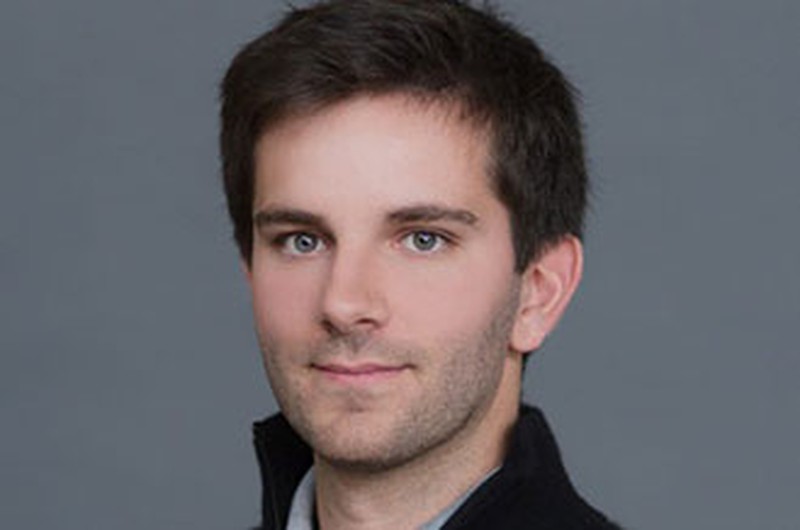
Antoine Prévost-Balga PhD student Université Sorbonne Nouvelle Paris 3
What bachelor's degree did you complete?
“I completed my bachelor's degree at Université Sorbonne Nouvelle - Paris 3 in Cinema and Audiovisual Studies.”
Why did you choose IMACS?
“I knew the IMACS program because Université Sorbonne Nouvelle - Paris 3 is part of the network. The master program sounded adventurous and highly stimulating.”
Which universities did you attend? / What were your personal experiences abroad?
“I went to the Université de Montréal (Canada) and then to the Goethe Universität Frankfurt (Germany).”
What do you like about this Master's program?
“The IMACS program offers the great opportunity to experience not only very different academic "contexts" but also the living in different countries and continent! Moving from one country to the other two times in the space of one year is a exciting and stimulating adventure which brings more knowledge, skills, resourcefulness, and new friends.”
Where and in which position do you work today?
“Right after my Master, I successufly accessed the job market of the french film industry. My former employer told me that his curiosity had been picked by my international profile. Today I am part of an international research collective based in Germany, and pursue my PhD thesis in cotutelle with Université Sorbonne Nouvelle - Paris 3 and Goethe Universität, Frankfurt. The international scope of the IMACS has played a decisive role in the directions I have taken since my Master.”
What do you want to give other prospective students to take along?
“The IMACS is a great opportunity and chance to experience an international trip through academia and beyond.”
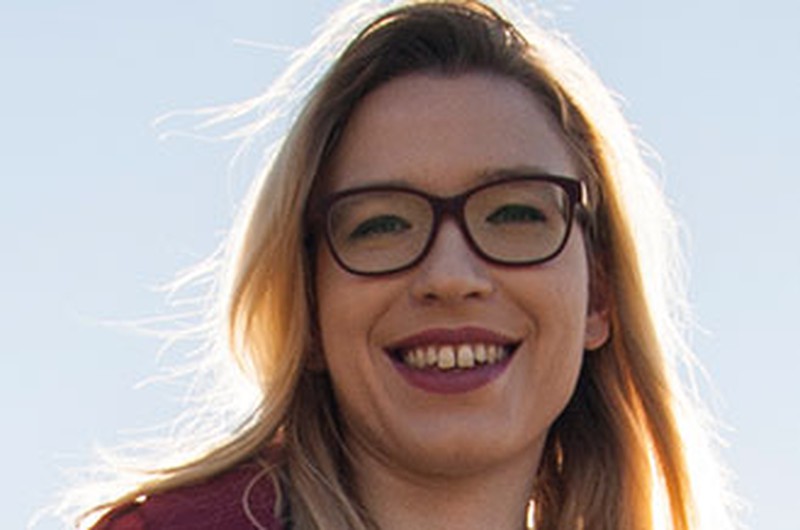
Cathrin Bengesser Post-doc researcher Ruhr-Universität Bochum
What bachelor's degree did you complete?
“I received a Bachelor of Arts degree in Literature, Art and Media from the University of Konstanz in Germany.”
Why did you choose IMACS?
“After a couple of years working in media education, I decided to return to university to work towards an academic career. IMACS allowed me to explore a research topic for my MA dissertation over the course of two years and from different national perspectives.”
Which universities did you attend? / What were your personal experiences abroad?
“My ‘home base’ was the University of Bochum. I spent the second semester at Birkbeck, University of London, before moving on to Sorbonne Nouvelle in Paris. Experiencing different university systems, research topics and lecture styles was eye-opening. Many connections and friendships from the stays abroad still last.”
What do you like about this Master's program?
“Because it is a pre-established exchange programme for a small number of students, the administrative organization of the stays abroad worked smoothly, and support was available at all institutions. I also enjoyed the opportunity to choose different courses to fit my interests.”
Where and in which position do you work today?
“I went on to pursue a PhD at Birkbeck in London, focusing on the different ways European public service broadcasters use TV drama to legitimize themselves in the context of a globalizing TV market. I am now working as a post-doc researcher in a European project on crime fiction at the University of Aarhus in Denmark. Without the experiences and connections made during the Master’s, I would neither have begun to research television from a transnational angle nor found my place in the international research community this easily.”
What do you want to give other prospective students to take along?
“Two years in three different places can be an organizational challenge, but if you are ready to pack your life into two suitcases, it is a trip worth taking.”
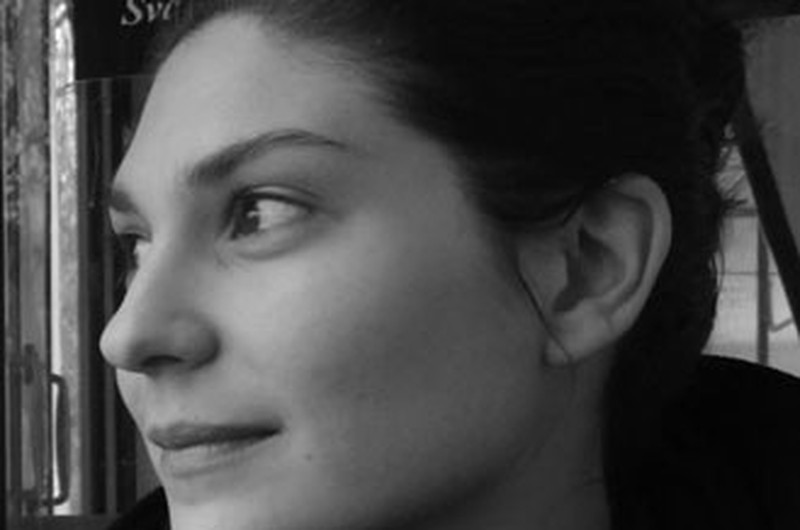
Cécile Chièze PhD student Université Sorbonne Nouvelle Paris 3
What bachelor's degree did you complete?
“In 2006 I have been graduated from a private Cinema School in Paris called ESRA. The graduation, called DESRA, is an equivalent of a bachelor in Cinema.”
Why did you choose IMACS?
“After several years of editing and teaching editing in Cinema schools, I decided to get back into studies in order to do a PhD. I choose the IMACS because of its fantastic opportunity of studying abroad and discover a variety of topics and different ways of teaching.”
Which universities did you attend? / What were your personal experiences abroad?
“I studied first at to the Goethe Universität in Frankfurt (first 2014’s semester) and then at the UVA in Amsterdam (second 2014’s semester). Both have been very enriching experiences in terms of encounters and the quality of the classes dispensed.”
What do you like about this Master's program?
“Its international aspect. I think it is an incredible chance to meet and follow the courses of researchers at an international level. It is also a great opportunity to meet others students of the whole world.”
Where and in which position do you work today?
“Professionally, I give new editing courses in Cinema schools based on theory and practice. The IMACS degree enriched my knowledge and reflexions in many directions and it is still nourishing the way I approach my classes, both in terms of content and pedagogy. In parallel, I am a PhD candidate. The subject of my PhD is about the Audiovisual Essays, a practice I discovered thanks to a course given by Cristina Alvarez López and Adrian Martin I followed at the Goethe Universität.”
What do you want to give other prospective students to take along?
“Having the opportunity of studying in three different universities is rare and it is a beautiful human and learning experience.”
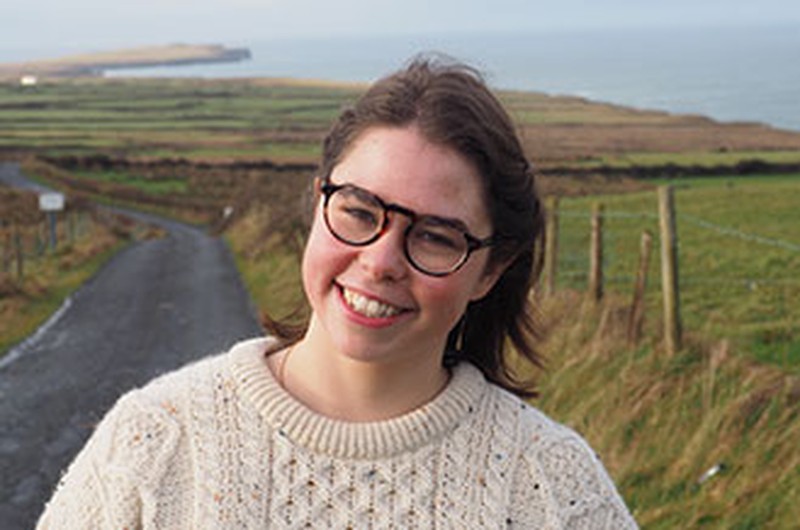
Eloïse Rivery Professional Université Paris Nanterre
What bachelor's degree did you complete?
“I have completed two bachelor's degrees : one in ethnomusicology, and the other in film studies.”
Why did you choose IMACS?
“I mainly chose IMACS for its opportunities to go abroad. I wanted to discover new cultures, new academic pedagogies, new approaches to concepts as well as new disciplines; or disciplinary fields not taught in my home university.”
Which universities did you attend? / What were your personal experiences abroad?
“My two semesters abroad took me to Montreal (UdeM) and Frankfurt (Goethe Universität) back in 2016. The opportunity to go to Montreal was very important to me; my dual interest in anthropology and film studies led me to work on indigenous filmographies and the cultural ways of approaching cinematographic practice. I was particularly interested in the cinema of the North American First Nations. The University of Montreal had an exciting class on this subject, as well as a much richer library material than in Europe. As for the Goethe Universität Frankfurt, I discovered there a very multidisciplinary approach to film studies, in connection with the humanities and social sciences. This, while allowing me to swim in the German-speaking culture: I had courses in both English and French in Montreal, and it was important for me to also have courses in a second foreign language.”
What do you like about this Master's program?
“I liked having a lot of freedom with this program. Being able to choose your courses, choosing your research subjects according to your interests is a great chance. Being able to meet so many other young people of other nationalities who were passionate about the same subjects was also very stimulating! I also liked the great independence that this program left us. With few students in this curriculum, it was often necessary to be resourceful, to juggle between all administrations. I had the impression of experimenting more in two years than during all my university studies; everything was very rich, dense, intense!”
Where and in which position do you work today?
“Today, I teach German and I participate in film production workshops in schools. Previously, I worked for a traveling cinema circuit, where I took care of school sessions organized in France with the CNC. Teaching has been a long-standing goal, and I'm still looking for the terms that work best for me. I would ideally be able to combine film studies and anthropology by setting up image education workshops.”
What do you want to give other prospective students to take along?
“This international master is a great opportunity, especially at this stage of our studies, where our desires and specializations are more precise. Humanly speaking, it is a once in a lifetime experience; I had the opportunity to build strong friendships that last today. I sincerely recommend the program to all those interested in film studies who wish to integrate into trans-disciplinary and cross-border dynamics.”
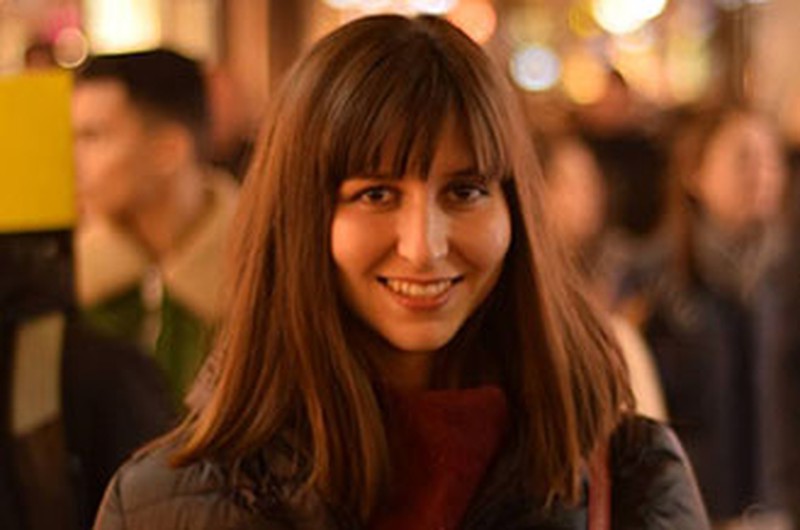
Karin Fleck PhD student Goethe-Universität Frankfurt am Main
What bachelor's degree did you complete?
“I have completed my bachelor's degree in Theater-, Film- and Media Studies.”
Why did you choose IMACS?
“After my bachelor, I wanted to focus on film studies and the idea of combining my favorite field with semesters abroad at partner universities seemed to be a very attractive offer. In the end, the program turned out to be one of the best decisions I ever made.”
Which universities did you attend? / What were your personal experiences abroad?
“I spent my two semesters abroad at the Birkbeck College in London and the University of Amsterdam. Both experiences were very enriching, albeit in very differrent ways. Birkbeck College is comparable to an evening school with small course groups, which creates a nice, almost family-like atmosphere during discussions that even make you forget you are in a learning-environment. The University of Amsterdam is excellently organized and will endeavour to ensure that you can join many Erasmus activities with other foreign students in and around Amsterdam, while also providing a high-teaching quality for their courses.”
What do you like about this Master's program?
“The exact balance between experiencing other cultures, their institutions and working on an individual research project that you can watch progress and growing over time and at different places.”
Where and in which position do you work today?
“I am now part of the research training group ‘Configurations of Film’ at the Goethe University in Frankfurt. Besides IMACS’ theoretical orientation that qualifies you (among other things) to pursue an academic career, it is especially your own and project-focused research that teaches you most. During my semesters abroad, I learned how to quickly adapt to university-specific assignment standards and use their associated research institutions (such as film archives or different libraries). These experiences prepared me for the following research stays during my PhD. Above all, I was able to make valuable, professional contacts to scholars, most of who are still in touch with me.”
What do you want to give other prospective students to take along?
“Don't be afraid to apply for the universities of your desire! Put effort and passion into your projects and try your best! Against all expectations, I was accepted at both English-speaking universities of the program and had one of the best times of my life!”

Lisa Püscher Professional Goethe-Universität Frankfurt am Main
What bachelor's degree did you complete?
“I pursued a binational Bachelor‘s program in media and communication studies at the Bauhaus Universität Weimar (Germany) and the Université Lumière Lyon 2 (France). This German-French degree, called ‘European Media Culture’, focuses on media science, media culture and media economics and is part of the european network Université Franco-Allemande (UFA).”
Why did you choose IMACS?
“I choose the IMACS program at the Goethe University Frankfurt because I wanted to pursue a Master in film and media studies in an international context, in order for me to gain new perspectives on media in an anglophone environment.”
Which universities did you attend? / What were your personal experiences abroad?
“I attended the Université de Montréal in Canada, during the second semester, which was one of my best experiences abroad. I had the chance to discover cinema from Quebec and the importance of orality and sound, which had a big influence on the way I analyze film today. During my third semester in Paris, at Sorbonne Nouvelle - Paris 3, I discovered the heritage of French cinema, by getting access to impressive restored film material from the twenties.”
What do you like about this Master's program?
“I really appreciated the diversity and creativity of doing research on cinema and media in a multilingual and multinational surrounding.”
Where and in which position do you work today?
“The IMACS program enabled me to read film, media and culture in an international context and to understand the importance and influence of cultural exchange. The last four years I was in charge of the professional registrations at the Festival de Cannes in Paris, France. Today, I am still in Paris, I work for an international network of cinemas that promote the diffusion of European films.”
What do you want to give other prospective students to take along?
“The IMACS program is a great experience, which I highly recommend, especially for those who are curious and flexible and wish to enrich a strong scientific specialization by a challenging program.”
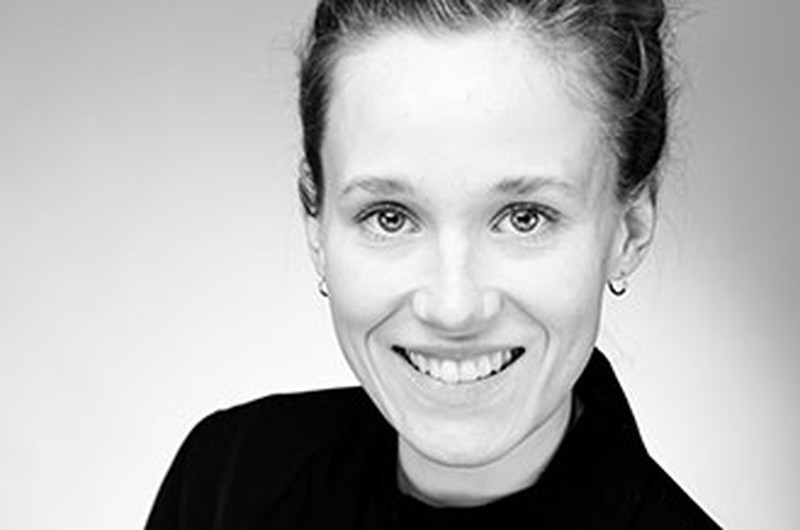
Lisa Rölleke Professional Ruhr-Universität Bochum
What bachelor's degree did you complete?
“I completed a Bachelor of Arts degree in media studies and art history at Ruhr-Universität Bochum.”
Why did you choose IMACS?
“During my bachelor studies I realised that I wanted to focus on moving images. Also the international aspect of the programme really convinced me as I haven’t been on a semester abroad before and I was curious to see how the academic approach varies from one country to the other.”
Which universities did you attend? / What were your personal experiences abroad?
“I’ve spent my first semester abroad at Université Charles-de-Gaulle Lille 3 where learning to speak French at university-level or at least fluently was one of the main difficulties. I learned French in school and was very nervous if my basic skills would suffice for the university’s requirements. Thanks to a French course organised by the International Relations Department my French has significantly improved after a few weeks. For my second mobility semester I went to Université de Liège where I could finally concentrate on my studies without thinking too much of the foreign language aspect.”
What do you like about this Master's program?
“I enjoyed having the possibility to concentrate on cinema studies in general and to specialise on my research project as I even had the chance to take some courses in documentary film. Meeting other young film enthusiasts from all over Europe was also one of the highlights for me.”
Where and in which position do you work today?
“Since my International Master degree in cinema studies I have worked as a curator and film festival organizer for several film festivals in the Ruhr area (f.e. doxs! documentaries for children and youth, Dortmund | Cologne International Women’s Film Festival).”
What do you want to give other prospective students to take along?
“Don’t be scared of learning a new language. Don’t worry too much about organizational matters. Talk to the local professors if you don’t know how to solve a problem on your own. Enjoy IMACS and especially the semesters abroad to the fullest!”
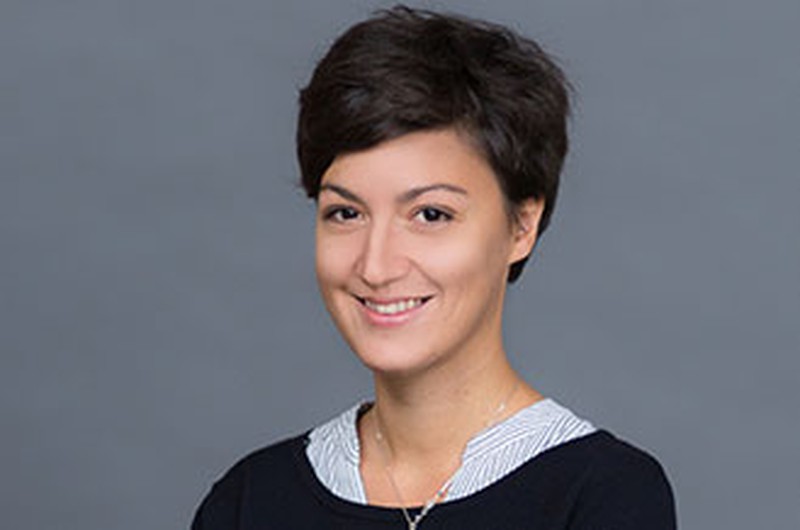
Nicole Braida PhD student Università degli Studi di Udine
What bachelor's degree did you complete?
“I graduated with a Bachelor in Archaeology at the University of Padua in Italy. During that time, I was active member of a student association and together we were organising a weekly film retrospective. It was a great time and I got to know young filmmakers and I directed and wrote my first (and last) short movie.”
Why did you choose IMACS?
“After my bachelor I was more interested in cinema than in archaeology. I did some work experience in the US and in Rome, for film festivals and film productions, I especially enjoyed writing film critics. In 2011 at the University of Udine I took a masterclass on this topic and I realised I wanted to learn more about film and media history and theory. That's how I came to know about IMACS, I wanted to study abroad and improve also my language skills.”
Which universities did you attend? / What were your personal experiences abroad?
“I applied in Udine which had a very young and stimulating scholarly environment. I then went to Frankfurt because it had an interesting course offer both in German and English. In Italy the lecture format is a frontal one, in Germany I really enjoyed taking seminars and writing essays. In my second year I went to Liège in Belgium, from there I could easily go to Amsterdam and Brussels to attend some film festivals that had been essential for my thesis research.”
What do you like about this Master's program?
“I wasn’t sure if to take a practice-based Master or one more research-oriented. But my experience as a student at IMACS taught me that the theoretical part and the academic writing was something I could enjoy. I really liked the idea of studying at various European universities and to be confronted with different methodological approaches and teaching systems.”
Where and in which position do you work today?
“I now am a doctoral candidate in the research collective ‘Configurations of Film’ at Goethe University in Frankfurt, without IMACS I for sure would not be here. I learned not only great scholars that helped me become a researcher, but I also understood that I wanted to continue working in the academic field of film and media studies.”
What do you want to give other prospective students to take along?
“I think that if you aim to study at IMACS you should expect that it will be both a great challenge and a wonderful experience, not only as a film and media student but also on an everyday life basis. You will have to adapt to different academic and cultural contexts, but you will gain in flexibility.”
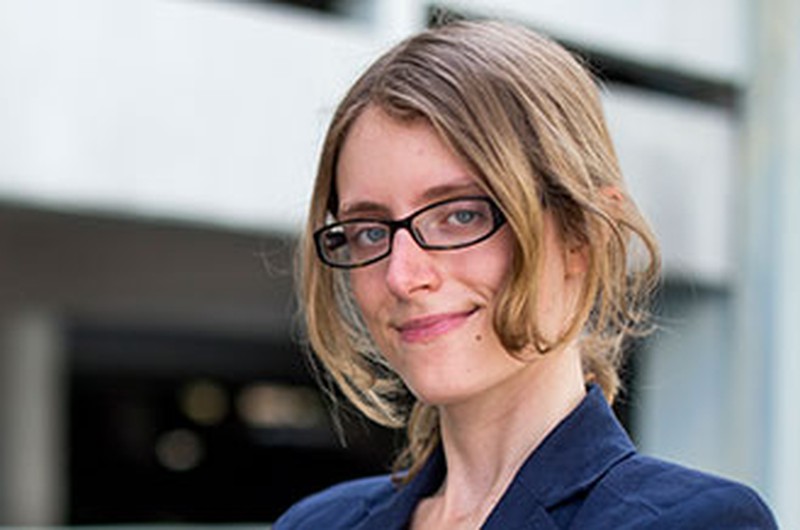
Nina Kremser Professional Ruhr-Universität Bochum
What bachelor's degree did you complete?
“I studied Comparative Literature and Media Studies for my Bachelor’s degree.”
Why did you choose IMACS?
“Well, for once I was definitely decided on wanting to spend large parts of (or even my whole) Master’s abroad. IMACS sounded particularly exciting as it offered the opportunity to explore even two foreign countries and ways of living/studying while a big part of the organisational hurdles are being taken care of for you (such as inscription, the acknowledgement of your CPs, etc.). Also, I liked that the program had a strong research focus and was designed for ambitious and motivated students who really wanted to consistently work on one topic over several terms.”
Which universities did you attend? / What were your personal experiences abroad?
“First, I was in Montréal at the French speaking Université de Montréal – a city I completely fell in love with. Everything was brilliantly organized, the Quebecois are amazing and welcoming people and the quality of study was top notch: small groups, teachers who took a real interest in us and supported us in any possible way with our research interests and really interesting subjects to choose from. I wish I could have stayed there even longer. However, I had to go to Birkbeck College in London, next, for my second term abroad, which was nice, too but just couldn’t compare. They only take very few people and are organized as an evening university. Being so spoiled from Montréal I must say that classes there felt way more basic and teachers just didn’t seem that involved with students. But still, London is a great city just in itself.”
What do you like about this Master's program?
“Well, there are the obvious answers, of course: meeting plenty of new people and making new friends, discovering new countries, the opportunity to learn from very different teachers and schools of thinking, being able to compare different university systems, improving your language skills, etc. Then, being able to spend 2+ years on a topic that really interests you is great because you learn a lot not only about that specific topic but also about staying persistent and following through with a project. And lastly, I liked that the program makes you grow as a person. Learning to be flexible and adjust to new surroundings, for example and realizing that you can make it anywhere. Or learning to value different perspectives. But, of course, also having your eyes opened for some tings that are not so ideal or that you don’t like sometimes. All of that is incredibly valuable and I do like the program for allowing you to make those experiences.”
Where and in which position do you work today?
“I work as a consultant at SOMMERRUST, which is an innovation consultancy in Berlin. I don’t think it’s so obvious to turn to consulting when your background is in humanities but for me it somehow seemed to fit perfectly. IMACS made me realize how much I really love being exposed to new things and challenges all the time. It also taught me to get along with and develop a good understanding of very different kinds of people – a skill incredibly important in ever-changing consulting projects with very diverse clients. Aside from that, thanks to my language skills IMACS qualifies me to work internationally and has shaped my way of thinking: staying open for different solutions to a problem, considering more than just one perspective and embracing everything new.
However, people should probably not consider IMACS as a straight path into consultancy. I’d still primarily consider it as a research Master.”
What do you want to give other prospective students to take along?
“Really commit yourself to the program! Choose a research topic that really interests you and make use of the different perspectives you can gain on it by studying at three different universities in three different countries. The program and your experiences abroad are what you make of them – as cliché as this sounds. Don’t just consume and wait for it to be over but make it your mission to get the most of it all. You will miss your university days as soon as they are over and especially the freedom that came along with them. So, don’t let them go to waste, embrace everything new, keep your eyes and mind open for new influences and just consider this as a unique chance to enjoy the journey and work on something that really interests you.”
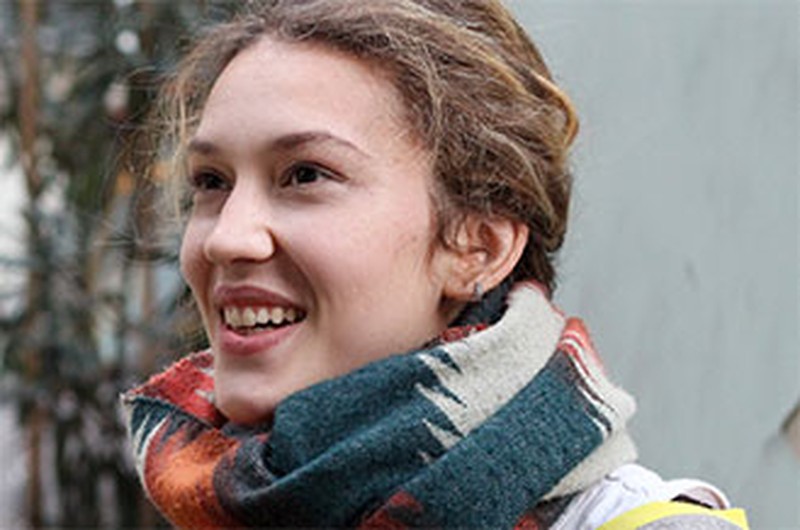
Zoé Regnard PhD student Université Paris Nanterre
What bachelor's degree did you complete?
“I completed my Bachelor's degree in spectacle arts and specialised in cinema in University Rennes 2. I did only my two first years in Rennes and I did my last year in Istanbul thanks to the Erasmus+ program.”
Why did you choose IMACS?
“I really enjoyed my Erasmus during my Bachelor's degree, I learnt a lot and I was looking forward to improve my English and to learn more about other Europeans cultures. The IMACS program was the perfect opportunity for me to do that while accomplishing my Master's degree. I also choose IMACS in order to learn new ways of teaching and learning as well as new disciplines.”
Which universities did you attend? / What were your personal experiences abroad?
“I did my semester abroad at Liege University and my second semester abroad at Amsterdam University. I discovered new ways of teaching and new cultures as well as new cities. In countries like Belgium or the Netherlands it is easy to travel during the week ends thus it’s a full experience!”
What do you like about this Master's program?
“I really enjoyed studying abroad within my Master's degree and I discovered teachers, and disciplines that were really helpful for me Master's thesis and even now for my PhD project. It is a real opportunity to discover how does the researches field work abroad, thus to learn new tools, new methods and new approaches.”
Where and in which position do you work today?
“I am still studying. After graduating from IMACS I decided to do a PhD on Palestinian cinema and its archives thus I am learning Arabic languages and cultures in Paris while preparing my PhD project at Nanterre University.”
What do you want to give other prospective students to take along?
“IMACS taught me a lot, it forced me to have a huge courses diversity and to be organised in my Master's thesis researches even when I was abroad.”